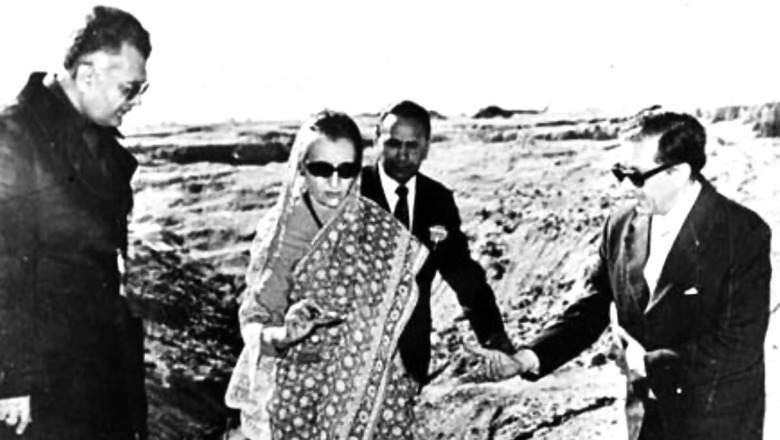
views
SMILING BUDDHA: 49 years ago today, India reached a historic milestone after successfully conducting its first-ever nuclear test in Rajasthan’s Pokhran in 1974. The codename of the nuclear test, which made India the sixth nation in the world to conduct a nuclear test back then, was Operation Smiling Buddha.
The historic test was conducted under the supervision of the then director of Bhabha Atomic Research Centre (BARC), Raja Ramanna. India, on May 18 in 1974, was also celebrating Buddha Purnima, because of which its first nuclear test was named Smiling Buddha.
India conducted its first nuclear test on May 18, 1974, in Pokhran, Rajasthan, under the able leadership of Prime Minister Smt. Indira Gandhi, the Iron Lady of India.Codenamed ‘Smiling Buddha’, it was the first confirmed nuclear test by a nation outside the P5 of the United… pic.twitter.com/ur0iDn0of8
— Congress (@INCIndia) May 18, 2023
In the operation, a thermonuclear device was tested in the Pokhran firing range. Ever since the test, the yield of the device has been a topic of debate. However, as per news agency PTI, it is believed that the actual yield was around 8-12 Kilotons of TNT.
Operation Smiling Buddha gained international attention because, with this successful achievement as a feather in their cap, India had become the first nation apart from the five permanent United Nations Security Council (UNSC) members – China, Russian Federation, France, the United Kingdom and the United States – to conduct the test.
It is being said that after the test was successfully done, Dr. Ramanna called the then Prime Minister Indira Gandhi and told her, “The Buddha has smiled”.
49 years ago, India conducted its first Nuclear Test, code named “Smiling Buddha”.Our sincere gratitude to our scientists for this outstanding feat.
The exemplary and the dynamic leadership of Smt. Indira Gandhi, showing immense political courage, shall always be remembered. pic.twitter.com/WD6r0BXxwW
— Mallikarjun Kharge (@kharge) May 18, 2023
Operation Smiling Buddha was also a huge success for India because it managed to steer clear of the detection by the United States and other intelligence agencies before conducting the nuclear test.
But after the test, developed nations including the US imposed a few tough sanctions on India and the reason they stated was that nuclear tests like the one conducted in Pokhran can lead to nuclear proliferation.
Earlier, the operation was initialised on September 7, 1972, when former PM Indira Gandhi authorised the scientists to detonate an indigenously designed nuclear device. After Operation Smiling Buddha, in 1998, the country also conducted five nuclear tests—of which three were conducted on May 11 and the other two were conducted on May 13.

















Comments
0 comment